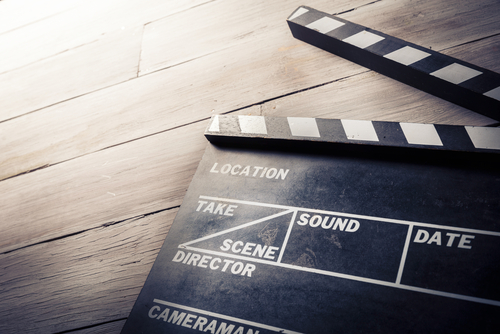Yet Another Depressing Study Confirms Hollywood’s White Male Straightness


Add another study to the pile of studies saying Hollywood totally sucks if you’re a woman, a person of color, and/or a person who identifies as LGBT. The study, carried out by researchers at USC’s school for communication and journalism, says that there is an “epidemic of invisibility” currently running rampant throughout the stories being presented in our media today. Called the CARDReport, (Comprehensive Annenberg Report on Diversity in Entertainment) it presents some pretty staggeringly depressing statistics around representation.
Summed up: things really suck. The study says that “the film industry still functions as a straight, White, boy’s club.” Of the 11,000 roles they analyzed, 37.1% of characters (and 42% of series regulars) were female. You’re apparently more likely to see more women working behind the camera than in front of it, but “few women fill top leadership roles in media companies.” As the study says, “as power increases, female presence decreases.”
Additionally damning are the statistics they’ve found regarding representation of people of color:
No platform presents a profile of race/ethnicity that matches proportional representation in the U.S. Over 50% of stories featured no Asian speaking characters, and 22% featured no Black or African American characters. The complete absence of individuals from these backgrounds is a symptom of a diversity strategy that relies on tokenistic inclusion rather than integration.
And it keeps getting worse. Here are their findings about LGBT representation:
Just 2% of speaking characters were LGBT-identified and a mere seven transgender characters appeared in the sample of content—four of whom were in the same series. Moreover, LGBT characters were predominantly White and male. While over half of LGBT characters were depicted in committed romantic partnerships, less than one-quarter were shown as parents or caregivers. This latter finding is problematic given recent U.S. Supreme Court decisions and the gains made for LGBT families in the U.S.
Definitely check out the full details of the study–there are plenty more intriguing, enlightening figures and statistics.
It’s so very, very important that these problems be alleviated. Things absolutely need to change. As we so often say: representation matters. We, as a society, depend so much on the media we consume to tell us what and how to think. Granted, we’d do better to not be so reliant on pop culture and media and things like that to tell us how to live, but given that we don’t, the least we can do is expect our media to reflect the life it’s purportedly representing.
Yes, it’s incredibly nice to see yourself represented on screen. It’s downright empowering–inspiring, even. But there’s value to be found in better representation in that it helps others see us as we really are. As the point about racial representation suggests above, when you have a diversity strategy that heavily relies on tokenistic inclusion, you find that your supposed helpfulness only serves to undermine the diversity you claim to be promoting.
I repeat myself because, well, this bears repeating: things really suck for a hell of a lot of people in Hollywood. This suckitude has further reaching implications than just the supposed business “boon” that diversity can bring to a movie. Movies, shows, and everything that goes into the making of them matter, and we must demand more of the people and companies who make them.
(via Vulture, image via Shutterstock/Fer Gregory)
—Please make note of The Mary Sue’s general comment policy.—
Do you follow The Mary Sue on Twitter, Facebook, Tumblr, Pinterest, & Google +?
Have a tip we should know? [email protected]